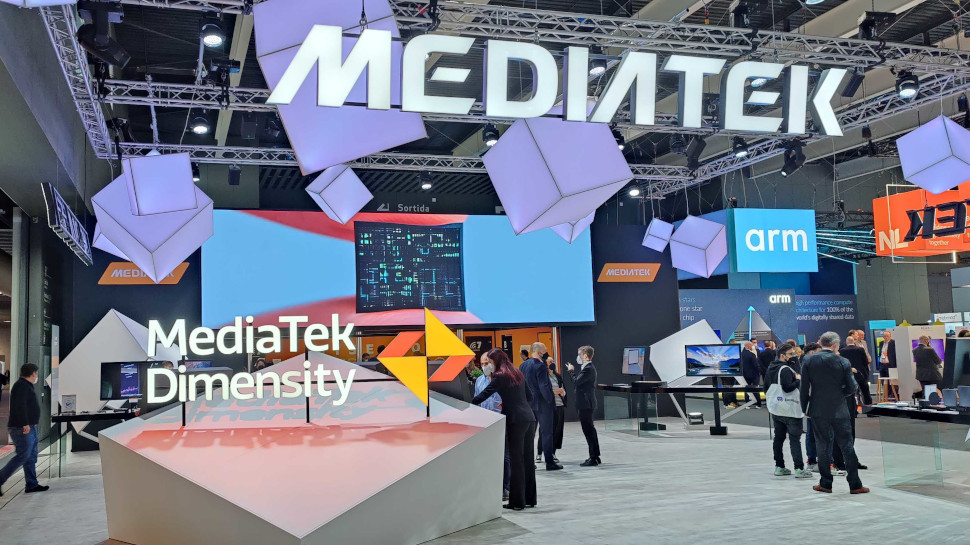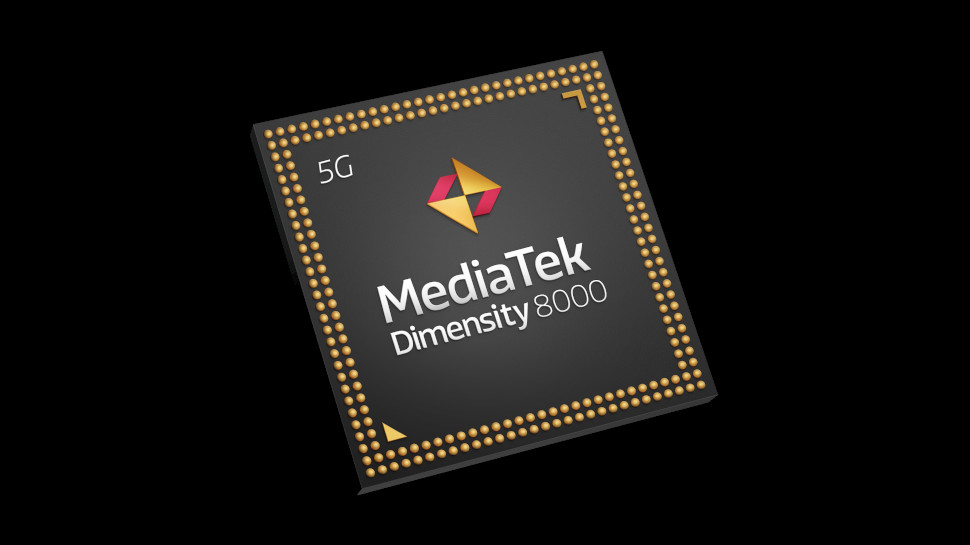MediaTek is coming for Qualcomm's smartphone crown
MediaTek is attempting to break into flagship smartphones

MediaTek has announced two new premium chipsets designed for flagship 5G mobile devices: the Dimensity 8000 and Dimensity 8100.
Launched at MWC 2022, the new SoCs add an additional tier to the company’s existing portfolio, filling a performance gap between the recently launched Dimensity 9000 and the less performant Dimensity 1300.
The Dimensity 8000 series chips bundle four Arm Cortex-A78 cores, an Arm Mali-G610 MC6 GPU and MediaTek’s latest AI processing unit, a combination the company says delivers “the most power-efficient performance in its class”.
Smartphones powered by latest MediaTek chips are expected to launch later this quarter, at the $500-$700 price-point.

MediaTek tackles the flagship market
Historically, MediaTek has played in the somewhat less sexy portions of the market, featuring inside budget and mid-range phones aimed at users for whom performance isn’t necessarily the priority.
The launch of the Dimensity 9000 in December last year signalled a shift in strategy, which will see MediaTek attempt for the first time to muscle its way into flashship mobile devices, a field traditionally dominated by Qualcomm.
At MWC, TechRadar Pro spoke to Pascal Lemasson and Rob Moffat, executives in charge of sales at MediaTek, who provided additional context around the company’s new approach and the significance of its new Dimensity chips.
Are you a pro? Subscribe to our newsletter
Sign up to the TechRadar Pro newsletter to get all the top news, opinion, features and guidance your business needs to succeed!
“The strategy is to offer our customers chipsets from bottom to top. Before the Dimensity 9000, we had a gap at the top end,” said Moffat. “In the last three years, our R&D investment has been massive and 5G is a huge opportunity for us, so we’ve taken a decision to target the high-end market.”
“Ultimately, we need to be focused on technology leadership, which takes you automatically into top-tier products.”
Although all Android smartphone vendors use MediaTek chips in at least some of their devices and the company now holds the greatest market share (at roughly 40%), Qualcomm is still largely seen as the darling of the mobile processor space. Asked whether the company is seeking deliberately to break this narrative with its new Dimensity chips, the pair explained that there is still more to be done when it comes to changing the mindset of both customers and end-users.
“Qualcomm has dominated with Snapdragon for a long time, when it comes to share of the [flagship] market and the perception among technologists. But for us, it’s about looking after what we’re doing and making sure we have the best solution in place in order to compete,” TechRadar Pro was told.
“We need some time to change people’s conclusions about who the chipset leader is, in terms of bleeding-edge technology, performance and value to the end-user. But benchmarking shows that MediaTek is now in the lead,” added Lemasson.
Unlike Qualcomm, MediaTek’s mobile chipsets do not support 5G mmWave, which offers higher speeds over short distances than sub-6Ghz 5G. Lemasson and Moffat say the technology is already in place, and will feature in MediaTek SoCs launched later this year.
In other departments, however, the company is convinced its flagship SoCs are ready to compete with Qualcomm, toe-to-toe.
MWC (Mobile World Congress) is the world's largest showcase for the mobile industry, stuffed full of the newest phones, tablets, wearables and more. TechRadar is reporting on the show all week. Follow our MWC 2022 live blog for the very latest news as it happens and visit our dedicated MWC 2022 hub for a round-up of the biggest announcements.
- Also check out our lists of the best business smartphones and best rugged smartphones
Disclaimer: Our flights and accommodation for MWC 2022 were funded by Huawei, but the organization had no editorial control over the content of this article.

Joel Khalili is the News and Features Editor at TechRadar Pro, covering cybersecurity, data privacy, cloud, AI, blockchain, internet infrastructure, 5G, data storage and computing. He's responsible for curating our news content, as well as commissioning and producing features on the technologies that are transforming the way the world does business.